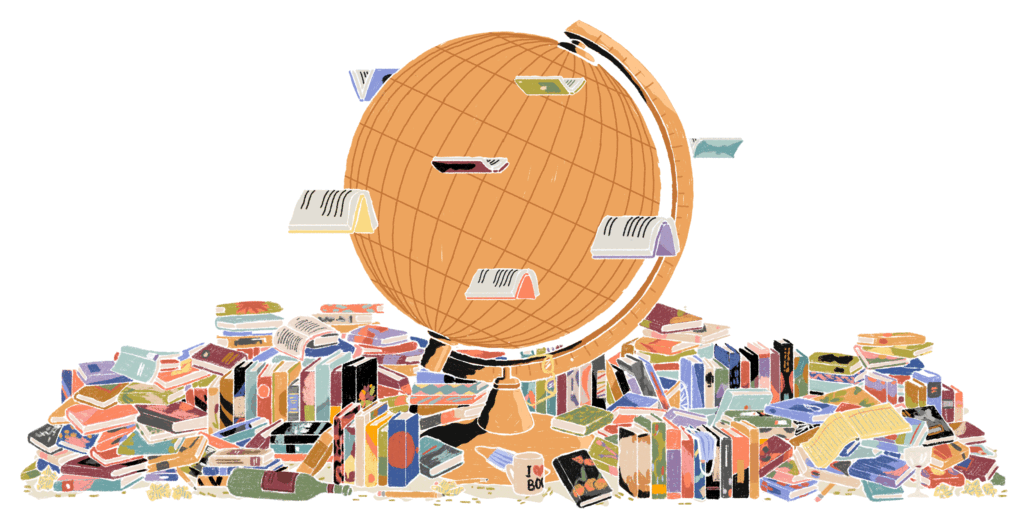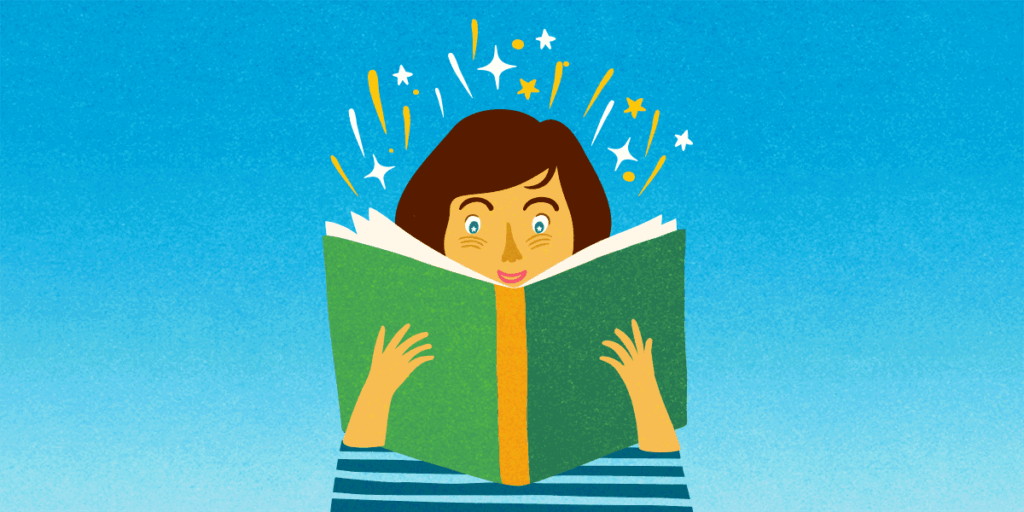In the ever-evolving world of information and entertainment, Books & Media play a foundational role in shaping how we think, learn, communicate, and perceive the world around us. From the traditional printed book to the digital media landscape, these tools influence education, culture, political opinions, and even societal values. But how deep does this impact go? And how has it changed in the modern digital age?
✅ Key Takeaway
| Aspect | Books | Media | Shared Impact |
|---|---|---|---|
| Primary Role | Deep learning and reflection | Fast communication and engagement | Educate, inform, entertain |
| Format | Physical (print), Digital (eBook, audiobook) | Print, Broadcast, Digital (web, social, streaming) | Multimodal – available across multiple formats |
| Consumption Style | Long-form, immersive | Short-form, instant, often interactive | Choice-driven based on user behavior and interests |
| Key Strength | Critical thinking, empathy, knowledge retention | Awareness, real-time updates, mass reach | Enhances understanding of self and society |
| Challenges | Physical cost, storage, digital fatigue (eBooks) | Misinformation, sensationalism, echo chambers | Requires media literacy and critical evaluation |
| Opportunities | Lifelong learning, cultural preservation | Global connectivity, multimedia storytelling | Empowerment through access, creativity, and personalized learning paths |
| Ethical Concerns | Censorship, piracy | Data privacy, manipulation, freedom of expression | Users must advocate for ethical, inclusive, and fair content ecosystems |
| Future Direction | Hybrid models (physical + digital), AI-curated content | AI-generated media, decentralized content, AR/VR | Seamless integration of traditional and futuristic experiences |
| User Responsibility | Choose credible authors, read critically | Verify sources, avoid clickbait, engage respectfully | Be an informed, conscious consumer and creator |
What Do We Mean by “Books & Media”?
Books – A Legacy of Knowledge
Books have long been considered timeless vessels of knowledge, literature, and thought. From the ancient papyrus scrolls of Egypt to the Gutenberg printing press in the 15th century, books have democratized knowledge, sparking revolutions, shaping ideologies, and preserving cultures.
Books come in many forms:
- Fiction (novels, short stories)
- Non-fiction (biographies, history, science)
- Educational (textbooks, academic journals)
- Spiritual (scriptures, philosophy)
- Technical and professional (manuals, guides)
Media – The Modern Messenger
Media encompasses all channels of communication used to convey information, including:
- Print media (newspapers, magazines)
- Broadcast media (radio, television)
- Digital media (websites, blogs, podcasts, social media)
- Multimedia (audio-visual content)
The media industry not only informs but also entertains, persuades, educates, and mobilizes the masses.
How Have Books & Media Evolved Over Time?

The Shift from Print to Digital
With the advent of the internet, the consumption of books and media has transformed drastically. Physical libraries have evolved into digital repositories. E-books, audiobooks, and online articles now dominate a space once ruled by hardcover books and broadsheet newspapers.
Rise of Multimedia Platforms
Modern platforms like YouTube, Spotify, Netflix, and TikTok have revolutionized how media is produced and consumed. They offer on-demand, personalized content that caters to niche interests and global audiences alike.
AI and Personalized Content
Artificial intelligence now curates personalized content feeds, making media more interactive and user-centric. Recommendation algorithms on platforms like Amazon and Netflix tailor suggestions based on behavior, increasing engagement while raising questions about echo chambers and information bubbles.
🧠What is the Impact of Books & Media on Human Thinking?
Shaping Public Opinion
Media plays a massive role in shaping public opinion on political, social, and economic matters. The way news is presented, the framing of narratives, and even visual imagery influence perception.
Books offer deeper engagement, allowing readers to immerse themselves in complex ideas, understand multiple perspectives, and develop critical thinking.
Promoting Empathy and Cultural Awareness

Books like To Kill a Mockingbird, The Diary of Anne Frank, and Things Fall Apart have helped readers understand different cultures, historical events, and human emotions, building empathy and awareness.
Similarly, media coverage of global issues such as climate change, war, or human rights violations can drive empathy and advocacy at scale.
Learning and Cognitive Development
Educational books and media tools enhance learning. Children’s programming like Sesame Street or apps like Khan Academy have become essential in early education. Audiobooks and podcasts are helping adults learn on-the-go.
🌍How Do Books & Media Influence Society?
Cultural Transmission
Books and media preserve and transmit culture, traditions, and values from one generation to another. Through them, we inherit stories, languages, beliefs, and customs.
Social Movements and Change
Media has been instrumental in social movements like #MeToo, Black Lives Matter, and climate activism. Books like Silent Spring by Rachel Carson sparked the environmental movement.
Economic and Political Influence
Advertising and media coverage significantly affect consumer behavior and political outcomes. Political campaigns invest heavily in media presence, and best-selling books often influence policy discussions and public discourse.
🎓How are Books & Media Used in Education?
Traditional Learning Resources
Books remain the cornerstone of education, particularly in developing nations. They are reliable, accessible, and relatively low-cost compared to digital alternatives.
EdTech and Digital Learning Tools
Online courses, e-learning platforms (Coursera, Udemy), and digital textbooks are changing education. Students can now access high-quality content from global institutions at a fraction of the cost.
Gamification and Interactive Media
Interactive media tools like educational games, AR/VR experiences, and virtual labs are making learning more engaging and effective. For example, apps like Duolingo gamify language learning, making it fun and addictive.
🎥What Are the Challenges Facing Books & Media Today?

Information Overload
In a world flooded with content, discerning credible information from misinformation is a major challenge. The rise of fake news and deepfakes has made it harder for users to trust media.
Censorship and Freedom of Expression
In many countries, both books and media face censorship. Governments, religious groups, or corporations may suppress information that contradicts their interests or ideologies.
Digital Divide
Not everyone has access to the internet or digital devices, creating a gap between those who benefit from digital media and those left behind.
Sustainability Concerns
Print books consume paper and ink, contributing to deforestation. On the other hand, digital media depends on electricity and devices with environmental costs.
🧾What is the Future of Books & Media?
Hybrid Models
The future likely lies in hybrid consumption – a mix of physical books and digital formats, traditional journalism and citizen reporting, passive watching and interactive storytelling.
Blockchain and Decentralized Media
Blockchain technology may empower creators to publish without intermediaries, reduce piracy, and ensure transparency in content usage and monetization.
AI-Generated Content
AI tools can now write articles, generate stories, and even create visual media. This raises ethical questions about authorship, originality, and content value.
Globalized Yet Personalized
Despite globalization, content is becoming increasingly personalized. Algorithms, voice assistants, and smart recommendations are reshaping how we interact with information.
🧾 Conclusion
Books and media, despite evolving technologies and changing formats, remain pillars of human civilization. They educate, inform, entertain, and inspire billions across the globe. While challenges such as misinformation, censorship, and environmental concerns persist, innovation continues to drive the sector forward.
As creators, consumers, and curators of content, our responsibility is to engage thoughtfully, choose wisely, and advocate for truthful, inclusive, and accessible knowledge-sharing practices.
🙋♂️FAQs
1. Why are books still relevant in the digital age?
Books offer in-depth, distraction-free engagement that digital formats often lack. They foster critical thinking, deeper comprehension, and a personal connection to ideas.
2. How does media influence children and young adults?
Media greatly shapes the behavior, values, and aspirations of young people. Educational content can help learning, but unfiltered exposure to violence or unrealistic standards can have negative effects.
3. Can digital media replace traditional books entirely?
While digital media offers convenience and accessibility, many readers still prefer physical books for their tactile experience, reduced eye strain, and emotional value.
4. How can readers verify the credibility of media sources?
Cross-referencing multiple reputable sources, checking the author’s credentials, and avoiding sensational headlines are key to identifying trustworthy media.
5. What are the benefits of audiobooks and podcasts?
They allow multitasking and access to knowledge on the go, making them ideal for busy professionals, commuters, or people with visual impairments.
6. Is social media considered a form of media?
Yes, social media is a powerful form of modern media that facilitates communication, content sharing, and community building on a global scale.
7. How can schools balance traditional books with digital tools?
By adopting a blended learning approach—using both printed and digital resources—schools can cater to diverse learning styles and technological access levels.